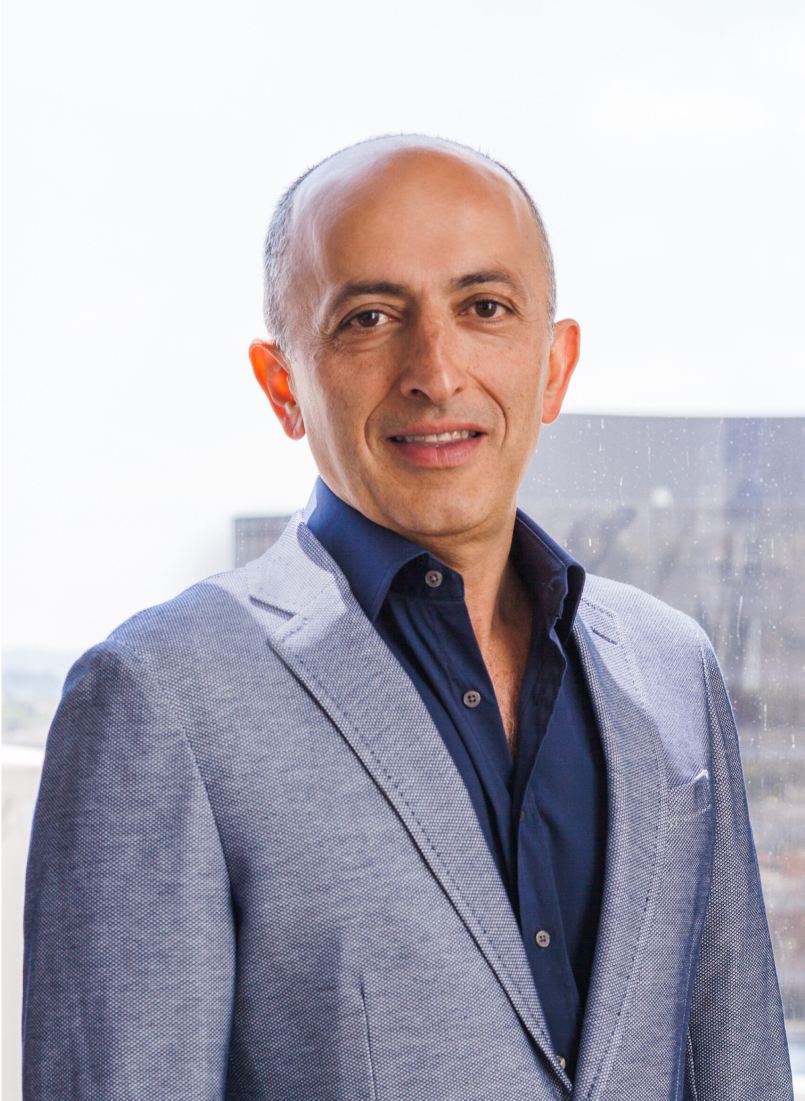Could you give us a short description of the company?
It’s a 35-year-old real estate investment firm. We focus on delivering what we call asymmetrical returns through an investment real estate vehicle. Our goal is to consistently deliver above-market returns with lower risk for decades. It’s what some people refer to as alpha. We deliver alpha through real estate.
Fantastic! And what will you say has been your keys to success in the last 35 years?
That’s a good question, and the answer is multifaceted. It’s going to be a highly skilled and trained management team that is very agile and entrepreneurial in our approach to real estate. We look for areas in real estate where we can find pockets of lower risk and higher return, and that requires us to be entrepreneurial. So, we look for dislocations in the real estate marketplace, building operating systems and infrastructure where we can be highly effective in managing that real estate, too.
We do a lot of value-add real estate, which requires a high degree of competence and property management. Again, this requires a strong team, infrastructure, strong operations, and a very long and strong track record in networking within the real estate network. So, finding real estate investments that really stand out and deliver above-market returns requires very deep relationships and a broad network. And we have that because we’ve been in the industry for so long, three decades and more. So, those relationships and networks are also important in why we’ve been successful.
And then, it’s also with our banking relationships that trust us and provide us enough liquidity to make sure we can be responsive. And when opportunities come up, we can
take advantage of those. And then a long relationship with our investor base that keeps following us. We’ve been able to perform for them. So, the combination of all those.
I would like to ask you about your current portfolio and opportunities. Will you tell us a little bit more about the properties you have as of today and what you are looking to invest in?
The portfolio today is a little bit over a billion dollars, and it’s a mix of apartments, retail,
office, and some industrial as well. And moving forward, we’re heavily focused on two or three sectors within real estate opportunity zones. Within opportunity zones, there is multi-family and industrial development. It follows what we call a prime and prime strategy, which means we’re really looking for prime markets and prime real estate classes within opportunity zones.
We also have a retail strategy where we work with national retailers around the country and help them grow by finding them locations, signing leases with them, and then doing built-to-suits. We’re doing that with Starbucks and a few other national real retailers, just as an example.
The third sector of our business where we see opportunities is also focusing on multi-family value-add. That is, buying existing multi-family properties and improving them to enhance the yield.
Understood. Could you tell us a little bit more about your business model? Will you tell us more about your degree of expertise across the board?
Yeah, sure. We’ve been doing this for 35 years, and we’re one of the unique firms that, decade after decade, has been able to beat most other alternative investment benchmarks. So, if you compare our returns to the S&P 500, the Dow Jones, bond funds, or even any private equity, we’ve been able to beat all of those benchmarks decade after decade.
We’ve done that through some proprietary systems that we’ve developed over the years. Those proprietary systems are our underwriting models, risk assessment, and due diligence analysis, to name just a few. There are probably about seven or eight other components to that. And that’s where we can deliver asymmetrical returns, really lower risk and higher returns. So, our business model is really focused on just that.
How do we hedge risk? How do we find opportunities where the risks are lower, and there are greater returns than what alternate investments are going to provide? We try to really beat the risk fee return by almost triple. So, if a US government bond is delivering 4%, we strive to achieve a minimum of 12. Vice versa, if we think the Dow Jones Industrial or the S&P 500 is going to deliver 8%, we want to deliver double that at 16%. So, we try to beat our benchmarks by 2 to 3 times.
However, we also bring a huge tax advantage, and our investments are very tax-efficient through the Opportunity Zone program, which is federally approved. In opportunity zones, if we hold an asset for 10 years, you don’t pay any taxes on your game, zero. It’s the only program, basically, in the country where there are no taxes you could pay from your profits, very unique. However, we also provide a really tax-efficient structure through a few other things, such as depreciation or 1031 exchanges. Other investments don’t do that.
So, let’s say the 16% or 20% return that we deliver is so tax efficient that you’re only paying, on average, about 10% taxes versus the 35% that you would pay if you’re in a bond fund, a stock market, or private equity. So, that’s a little bit more about our investment.
And what would you say sets you apart from other property investors?
We’re a bit more agile, meaning we will look for pockets of opportunity where other real estate investors are very product-specific. In other words, you have some real estate firms where all they’ll do is just multi-family, and so they’re stuck in that, or all they’ll do is an apartment, or all they’ll do is industrial. They’re specialists, and the downside to being a specialist is that’s all you can do. So, that’s the only thing that looks good, right? When you’re an apple farmer, the only thing you can sell are apples. Apples have to be great all the time. But sometimes, apple farmers have a bad season, and it’s not the best time to sell apples because you had a bad season.
That’s not who we are. We’re not always selling the same product because we’re stuck in that product niche. We actually will move around where we see the greatest opportunities. And so, there’ll be times when we don’t buy apartments at all because it’s not the right time, and that’s not where the greatest opportunities are.
The good thing about us is that when we are in a certain product type or niche, we are certain that that is the best opportunity in real estate. And that’s what we’re going to pursue, so we’re not stuck. That’s one of our advantages.
The other one is what I mentioned before: the management team, our deep network and the relationships that we’ve built over three decades, our proprietary systems, and all that technology and infrastructure we’ve built over thirty years. All of that’s supported by a track record that really is sort of the best thing, one of the best in the industry.
What would be your main message for property investors who would like to hire your services and collaborate with you?
My main message is that we’re going to have a crisis in the United States. No one knows exactly when that’s coming, but it’s coming for sure. That crisis is going to be coming from debt. The United States, at the national level, has debt to GDP now at 130, and it’s growing significantly. We are now in what we call a debt cycle, and it’s become structural, which means that we’re not going to solve this debt problem.
I actually just wrote a book that was just published by Forbes on this issue. The book is called “Money and Morons”. And what the book talks about is this issue of debt and what I call the great conflux. And it’s really important for investors. The reason is that these debt levels end up leading to crisis. If people don’t have enough passive income and investments to hedge against inflation, this debt that we keep piling on eventually is going to lead to a crisis. Part of that crisis is going to be very severe inflation or debasing our monetary system or debasing the dollar.
So, my message is to protect yourself and your family. When this crisis comes, you need to be invested. You need to have investments that protect you from inflation and give you passive income. That’s going to be the best defense you have to the coming crisis. You also have to educate yourself. It’s really important to look at the facts, the metrics, and the issues so that you can prepare yourself properly.
Too many Americans really don’t understand what kind of debt levels we’ve reached. Just to give you an indication of how important of an issue this is, Jerome Powell, the head of the Federal Reserve, Jamie Dimon, the head of JP Morgan, Elon Musk, who everybody knows, and a professor from Wharton, all in the last three weeks have said that our debt is reaching a level where a crisis is going to come. All of them said, “If we don’t solve this debt problem soon, it’s going to lead to a lot of hardship.”
Jerome Powell, the head of the Federal Reserve, said, “If we don’t start being adults and having adult conversations soon, our debt levels are going to be real problems.” These are some of the smartest people in the country warning us. We’re still not listening. That’s why it’s so critical to start making decisions for yourself and your family to protect yourself from the debt crisis that’s coming.
What would you say are the next steps to protect potential clients from the upcoming crisis?
Real estate is one of the best asset classes for tax efficiency, protection against inflation, and income and appreciation. The next step for us is to continue what we do and do it well, like we have been doing for so long. We will continue to educate investors on how they can protect themselves and use real estate as a defense and an income generator. And then I’ll continue to build a very, you know, rock-solid firm.
What is your vision for the company in the next 5 to 10 years?
We’re in another growth mode. There’s going to be another real estate cycle coming up right now, and we’re going to take advantage of that. Prices have come down nationally in real estate by about 15 or 20%. I expect them to come down another 5%. So, that’s about a 20 to 25% decrease in real estate values over the last 12 to 24 months. And we’re going to use that as a buying opportunity to buy at a lower cost. The plan is to double the firm’s size again over the next 3 to 5 years. So, we’re going through another growth stage.
















